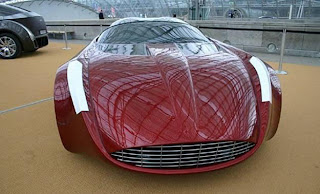
History
1960s to today
During the 1960s, Japanese automakers launched a bevy of new kei cars in their domestic market. These tiny automobiles usually featured very small engines (from 360cc to 600cc) to keep taxes much lower than larger cars. The average person in Japan was now able to afford an automobile, which boosted sales dramatically and jumpstarted the auto industry toward becoming what it is today. The first of this new era, actually launched in 1958, was the Subaru 360. It was known as the "Lady Beetle", comparing its significance to the Volkswagen Beetle in Germany. Other significant models were the Suzuki Fronte, Mitsubishi 500, Mazda Carol, and the Honda N360.
Rapidly increasing domestic demand and the expansion of Japanese car companies into foreign markets in the 1970s further accelerated growth. Automobile production in Japan continued to increase rapidly after the 1970s, as Mitsubishi (as Dodge vehicles) and Honda began selling their vehicles in the US. Even more brands came to America and abroad during the 1970s, and by the 1980s, the Japanese manufacturers were gaining a major foothold in the US and world markets.
With Japanese manufacturers producing very affordable, reliable, and popular cars throughout the 1990s, Japan became the largest car producing nation in the world in 2000. However, its market share has decreased slightly in recent years, particularly due to old and new competition from South Korea, China and India. Nevertheless, Japan's car industry continues to flourish, its market share has risen again, and in the first quarter of 2008 Toyota surpassed American General Motors to become the world's largest car manufacturer. [2]. Today, Japan is the third largest automobile market and, until China recently overtook them as the largest car producer in the world. Still, automobile export remains one of the country's most profitable exports and is a cornerstone of recovery plan for the latest economic crisis.
No comments:
Post a Comment